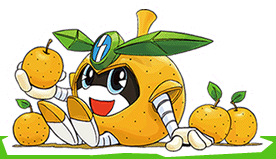No. 41 Disaster area support tour
Updated: March 15, 2015
(Published in the March 15, 2015 issue of Koho Inagi)
The city has been providing support for the recovery and reconstruction of the areas affected by the Great East Japan Earthquake immediately after the disaster by dispatching staff, etc., and plans to continue to do so in the future.
By the way, such support is important, but I feel that if we are too proactive, it will become a burden on both parties and will not last long. In order to continue providing long-term support, don't we need not only direct support, but also elements that make the experience itself enjoyable and indirect support?
City Hall carries out various mutual aid association projects for its employees. As part of this project, a disaster area support tour was proposed, and this year marks the third such tour. The idea is that if you travel, you should visit the affected prefectures and help increase consumption as much as possible.
This time we visited Soma City, Fukushima Prefecture, and it was an overnight tour on Saturday and Sunday. Before the earthquake, there were tourist inns on the coast surrounded by scenic pine forests, but many of them were damaged by the tsunami. Our accommodation was in the city center, but we checked in at multiple business hotels. I heard that there were a lot of construction workers staying there, and that there weren't many vacant rooms. Given this situation, I felt that this area is still in the process of recovery.
On the first day, volunteers from Soma City gave us a tour of earthquake-related facilities throughout the city, and I laid flowers at the cenotaph. Mayor Tachiya himself took time out of his busy schedule to give an explanation at the disaster prevention stockpile warehouse, Soma Hyorogura. I think it was a valuable experience for Inagi City employees as well, as they were able to hear directly from the mayor himself, who was at the forefront of the disaster response.
The next day, we played park golf against volunteers from Soma City. There is a thermal power plant in Soma City, and there is a former coal ash final disposal site nearby. Sports facilities have been developed that make effective use of the ground, with 9 holes x 9 courses spread across a vast site as far as the eye can see, including 6 soccer fields and 4 softball fields.
On the day of the event, a tournament was held for all of Tohoku, and the event was crowded with athletes. This competition is said to have originated in Hokkaido. Although it is similar to ground golf, it requires a special layout like a mini-course at a golf course, so it is still relatively unknown in the Tokyo metropolitan area, but it has rapidly become popular in recent years as a light sport that even beginners can take up right away. I am.
I think this competition can be used to promote citizen exchange between the two cities as part of continued support in the future.
Inquiries regarding this page
Inagi City Planning Department Secretary Public Relations Division
2111 Higashi-Naganuma, Inagi-shi, Tokyo
Phone: 042-378-2111 Fax: 042-377-4781







